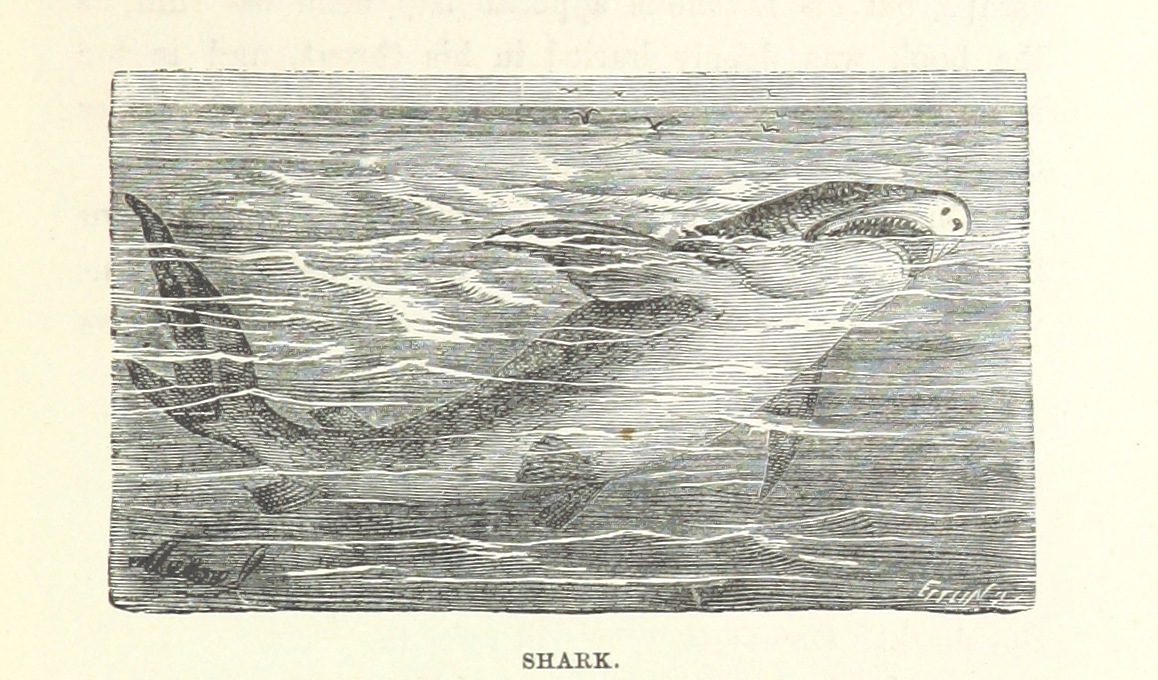25 January 2017
|
Paul Street charts his quest to find out about the life of William David McKay, an immigrant to Australia, who was awarded the Albert Medal for his role in aiding the victim of a shark attack.
Paul Street charts his quest to find out about the life of William David McKay, an immigrant to Australia, who was awarded the Albert Medal for his role in aiding the victim of a shark attack.
In Australia, 26 January is known as Australia Day, but back in 1912 it was called ‘Anniversary Day’, commemorating the arrival of the First Fleet at Sydney Cove in 1788.
So, on that Anniversary Day, a blacksmith named James Edward Morgan, aged 21, went for a picnic near ‘the Retreat’ on the Lane Cove River, Sydney, with his fiancee Miss Annie Grace Melle. Here Morgan met Alfred Barlow who was there with his friend William David McKay and their wives, who were on the jetty below the ‘Inebriates Home’.
Join the Family Tree community
Follow us on facebook
Follow us on twitter
Sign up for our free e-newsletter
Discover Family Tree magazine
They told Morgan that they had no swimming costumes but could rig up something. After lunch, Barlow and McKay went swimming and were joined by Morgan who, remembering that he still had his ring on, left them to hand it to his fiancee and then returned to them. Barlow asked Morgan if there was any danger from sharks as he was a bit nervous. Morgan replied, ‘No, I don’t think so, it is too far up’.
SHARK ATTACK DANGER
Barlow was right to fear shark attack as there had been three in the Lane Cove River since 1900: that year Stanley F James was fatally injured by a shark, in 1903 a man called Charles Duck was badly injured by a shark, and in 1908 a shark attacked and overturned a row boat - the two men in it were lucky to escape without injury.
So they went on swimming. Barlow was making for an island out in the stream while Morgan was swimming downstream. Then suddenly Morgan cried out ‘Help, oh help. A shark has got me!'
McKay, who was not a good swimmer, dived off the jetty and swam to Morgan, supporting him in the water until Barlow reached them. Together, they managed to get the dying blacksmith to shore, where his fiancee, Mrs McKay and Barlow’s wife Sarah carried Morgan into the shade and covered him with rugs. A doctor was sent for but Morgan died before the doctor arrived.
 The next day, Morgan was buried in the Waverley Cemetery, Sydney. On 28 January a large grey shark was caught by local fishermen and human remains were found in its stomach. It was believed to be the shark that killed Morgan and was put on display to raise money for Morgan’s mother. Both Barlow and McKay were awarded Gold medals and Certificates of Merit by the Royal Shipwreck Relief and Humane Society of New South Wales.
The next day, Morgan was buried in the Waverley Cemetery, Sydney. On 28 January a large grey shark was caught by local fishermen and human remains were found in its stomach. It was believed to be the shark that killed Morgan and was put on display to raise money for Morgan’s mother. Both Barlow and McKay were awarded Gold medals and Certificates of Merit by the Royal Shipwreck Relief and Humane Society of New South Wales.
Sadly, for the searcher, the award citations in the Society’s annual report don’t mention the recipient’s age, which would be useful in finding the recipient’s approximate birth date and to eliminate namesakes from the search. (Back to that later).
On 12 March 1913, after the official naming ceremony of Canberra, the federal capital of Australia, Lord Denman, the Governor-General of Australia presented to Barlow and McKay the Albert Medal – the highest civilian bravery award in the British Empire.
THE QUEST FOR WILLIAM DAVID MCKAY
According to his great-granddaughter Elice Green, Alfred Barlow was born in Salford, Manchester, in England on 10 January 1888, growing up in Lancashire and married his Sarah the day before they left Liverpool for Australia on the SS Dorset on 18 March 1911.
.jpg) After the birth of their second son, his wife was committed to a mental hospital in 1914, where Barlow continued to visit her until his death in North Sydney on 25 August 1948. His son Leslie sold his father’s medals after the death of his mother.
After the birth of their second son, his wife was committed to a mental hospital in 1914, where Barlow continued to visit her until his death in North Sydney on 25 August 1948. His son Leslie sold his father’s medals after the death of his mother.
All that is known of William David McKay is, like Barlow, he was a young man who was a carpenter who came from Great Britain.
McKay was living in Sydney at 57 Hornsby Street, Rozelle, until 1913 – after than I could find no trace of him. On checking the BMD indexes of New South Wales and Victoria I found two William David McKays listed but both were born in Victoria, so are not the Albert Medallist. I believe that William David McKay, like many British emigrants to Australia, decided to return to the United Kingdom. In 1972 the British Government decided that any Albert Medallists who were alive in October 1971 would be considered holders of the George Cross – they could keep their original award or exchange it for the George Cross.
Some 68 Albert Medallists were known to be alive in 1971 but recently research has found five more who were in fact alive, but didn’t come forward to make the fact known. So was William David McKay still alive in October 1971?
The following list is of Albert Medallists whose dates of death are unknown, so could have been alive in October 1971:
Anderson, Alexander (1916) S/Sgt M2076596 ASC
Beard, Walter Richard (1918) L/Cpl 4015 RE
Bennett, George (1915) Pte 114 12th Lancers
Bigland, John Edward (1918) L/Cpl 229006 RE
Bland, George Edward MC (1921) Lt-Col 105th Mahratta IA
Bodworth, Samuel Arnold (1918) Pte 70270 RAMC
Broadhurst, George (1916) L/Cpl 20111 10th SWB
Brown, John William (1917) WO2 59214 RAMC
Cheshire, William Donald (1917) Captain 17th Lancashire Fus
Cuthertson, James (1917) Pte 324094 RAMC
Ellaya (1921) Sub-Maj 1/88th Carnatic Inf Bn
Ewington, Herbert Frederick (1913) civilian
Firoze Khan (1935) L/Naik 8th Punjab Rgt
Foley, Richard MM (1916) Driver 27620 RFA
Fraser, David (1920) Chief Engineer Merchant Navy
Furneoux, Alfred William (1917) Merchant Navy
Galbraith, William MC (1921) Capt 19th Lancers IA
Gharib Shan (1920) India civilian
Gibson, Alexander (1919) Sgt 112204 RE
Gimble, Edward (1916) Pte G/861 Middlesex Rgt
Gunner, Walter George (1918) Tpr 5975 Dragoon Guards
Hanson, Arthur (1911) civilian
Hearne, Henry (1918) Cpl 9242 RFC
Henry, James Dixon (1916) AB Royal Navy
Heyns, Andrew Muller (1929) South Africa civilian
Higgin, Aaron Edward (1920) 2nd Engineer Merchant Navy
Hukam Dad (1935) L/Naik 7111 8th Punjab Rgt
Joyce, Michael (1917) ERA3ON.M1400 RN
Kabul Singh MC (1935) Jemandar 19th Hydersbad Rgt
Kimber, Walter (1916) SPOON 307820 Royal Navy
Lawrence, Joseph (1916) Pte M2/050433 ASC
MacKinnon, Neil (1916) Lieut HLI
McKay, William David (1912) civilian
McLaughlin, James (1918) Pte 201391 A&SH
Mangal Sain (1919) Tpr 2nd Lancers IA
Marshall, Frederick George (1915) Mech 290850 RN
Millar, Charles David (1918) L/Seaman 218811
Neale, John (1918) Lieut RNVR
Nicholl, Thomas (1918) F/Sgt 19081 RFC
Nunn, Edward (1919) AB 15703 RN
Powley, Herbert (1917) Deckhand SD1193 RNR
Raghu Nandan Singh (1920) Sepoy 723 2/150 Indian Inf
Reckie, Stanley Martin MM (1918) 2/Lieut Royal Fusiliers
Richardson, Edward Henry DSC (1916) Lieut RNR
Rowland, George Thomas (1918) Cpl 240005 DCLI
Rowlandson, Sidney Albert (1916) T/Capt ASC
Rur Singh (1922) Hav-Maj 48th Pioneers, IA]
Seymour, William (1917) Sgt 2022 2nd Northumberland Fus
Shooter, William (1916) A/CSM 15th Cheshire Rgt
Simmons, Edward Arthur (1918) Lieut 14th Middlesex Rgt
Smith, Harry (1920) Wt Engineer RN
Still, James (1917) civilian
Stoker, Alfred Ernest (1918) PO 227692 RN
Stones, Robert (1918) AB 29998 RN
Swainston, Albert (1911) civilian
Tanburk Irang (1942) Abor Volunteer Carrier
Thompson, Malcom (1918) ABRN
Twidle, Edgar (1917) Captain Merchant Navy
Usher, Albert Edward (1918) Pte M2/188130 ASC
Veladi Sammi (1925) India civilian
Wade, Charles Herbert (1918) Capt 88th Labour Coy
Walton, Thomas Michael (1916) Major RASC
Watson, Christopher (1916) 2nd Engineer, RN
Weeks, Frederick William (1919) A/Lieut RNR
Whitehead, William (1919) l/Cpl 14410 9th Manchester Rgt
Wood, Douglas (1917) Lieut 19th Lancashire Fus
Wright, Douglas William (1919) 2/Lieut 22nd Royal Fusiliers
The ranks given in this list are the recipient’s highest known rank and the units given are the ones in which the Albert Medallist was serving with when he won the medal. Anyone with information on William David McKay or the other Albert Medallists on this list, please e-mail me, or write to: Paul Street, 30 Baldwin Ave, Boronia 3155, Victoria, Australia.
Postscript
Paul adds: 'It may interest you to know that when Heroes of the Albert Medal by Allan Stanistreet was published in 2002, it covered the 250 servicemen who won the Albert Medal who were not known to be alive in 1971. In the book, there are 110 entries with no information on the recipient's dates of birth and death. By searching the internet, I have since found the death dates of 20 Albert Medalists. Allan Stanistreet has since found three military Albert Medalists who were still alive in 1974 but didn't make the fact known, so they are now considered George Cross winners.








.jpg)
